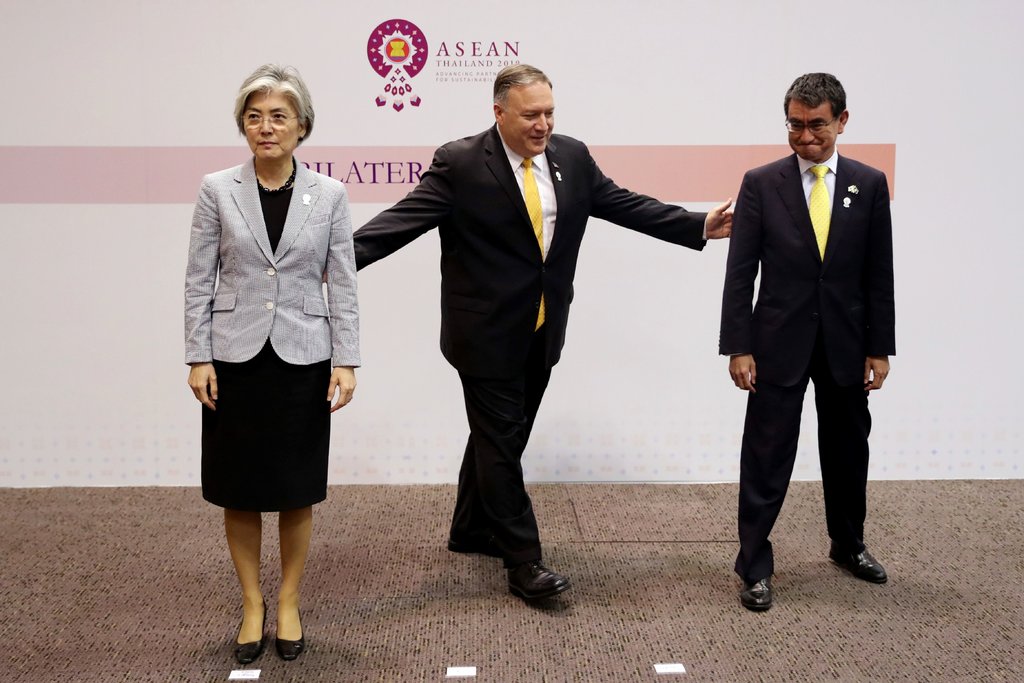Trade Dispute Between Japan and South Korea Escalates By Phillip Howard
In a move seen my some as “disturbing and unhelpful” for the global economy, Japan removed South Korea from a list of 27 countries that sees preferential approval of exports on industrial and high-tech products fast-tracked, instead imposing tighter export controls.
This development increases already contentious ties between both nations. Japan and South Korea have experienced strained relations ever since the Japanese occupation of the Korean peninsula from 1910 until Japan’s surrender at the end of World War II in 1945.
Both nations signed a normalization treaty in 1965 that eased tensions between the two nations. Recent strains stem from a series of Seoul court rulings (examples here, here, and here) that ordered Japanese companies to pay compensation for the use of forced labor during the occupation period.
Photo by Yonhap/EPA-EFE
“The logical end of the emotion driving the policies in Japan and South Korea,” explained Scott Snyder, Senior Fellow of Korea Studies at the Council on Foreign Relations, “is essentially that one states: ‘Well, we really don’t need the other.’” Snyder believes the feud could undermine U.S.-constructed security architecture that has been in place for decades in Asia.
South Korean president Moon Jae-in warned beforehand that “if Japan intentionally hurts [South Korea’s] economy, it will also have to suffer big damage,” adding that “[South Korea] will never again lose to Japan.” Foreign Minister Kang Kyung-wha also stated that South Korea is “preparing for various possible options” in response and that if the dispute is unresolved, “we are concerned that relations between the two countries would worsen to uncontrollable levels.”
Prime Minister Shinzo Abe recently stated that “with regards to the wartime-laborers issues, it has become clear that South Korea does not abide by international commitments” and “it is natural to assume that [South Korea] fails to keep promises on export control.” Hiroshige Seko, Japanese minister of the economy and industry, said “there will be basically no effect on global supply chains, or adverse impact on Japanese business” resulting from this standoff.
Photo by Jonathan Ernst/Getty
Japan’s actions have caused companies both in Japan and South Korea to respond from supermarkets refusing to stock goods from each other to reports of airlines reducing flights along certain routes. The move has also drawn international attention, as Secretary of State Mike Pompeo has planned on meeting with his Japanese and South Korean counterparts to resolve this issue.
“They’re both great partners of ours. They’re both working closely with us on our effort to denuclearize North Korea,” Pompeo stated, “so if we can help them find a good place for each of the two countries we’ll certainly find that important for the United States.”.
Phillip Howard is a graduate student at Utica College







